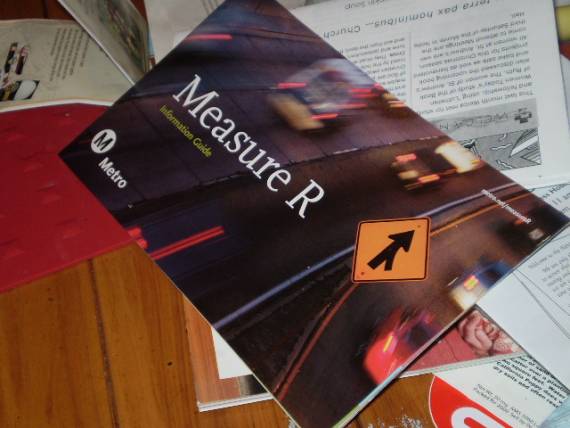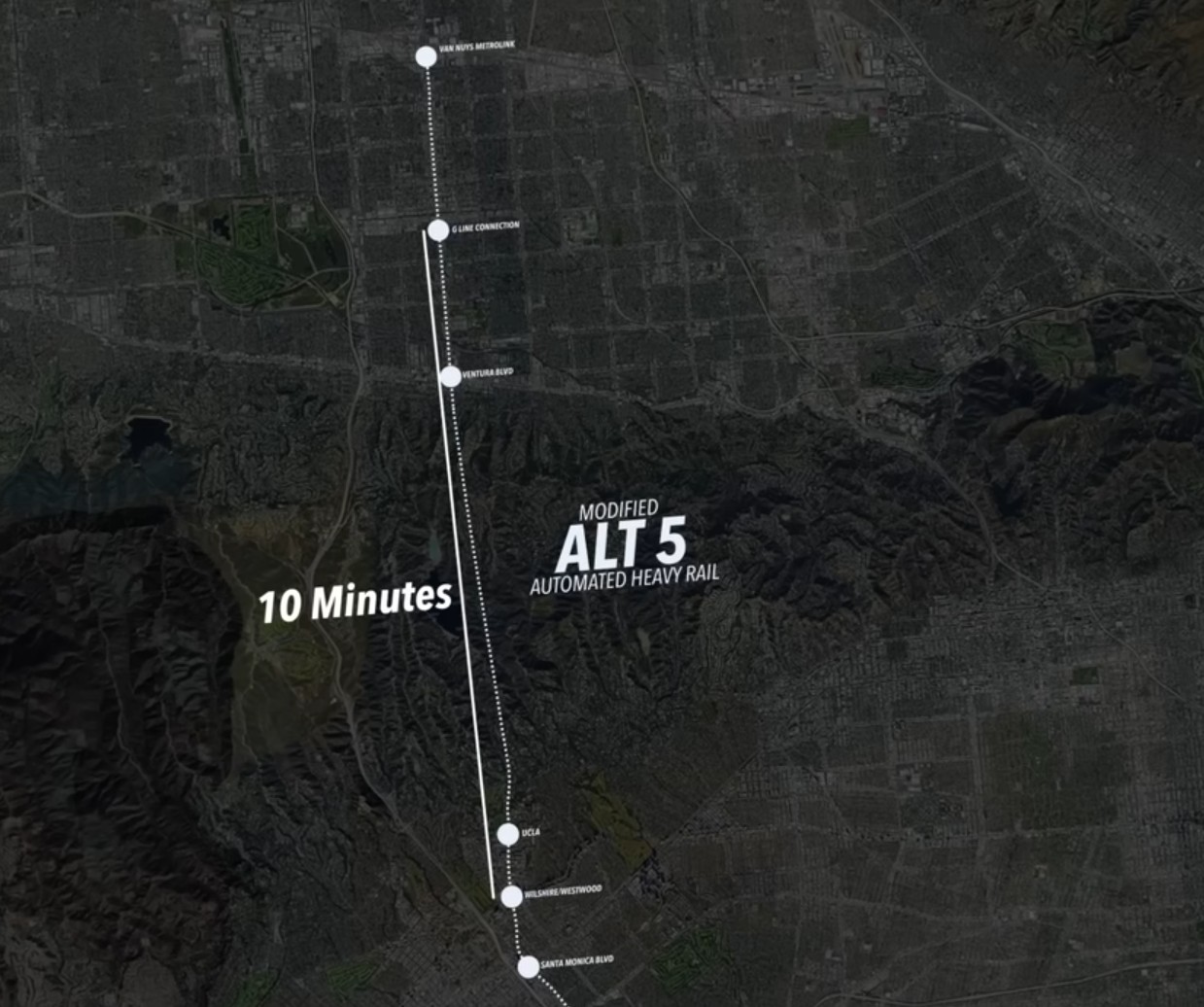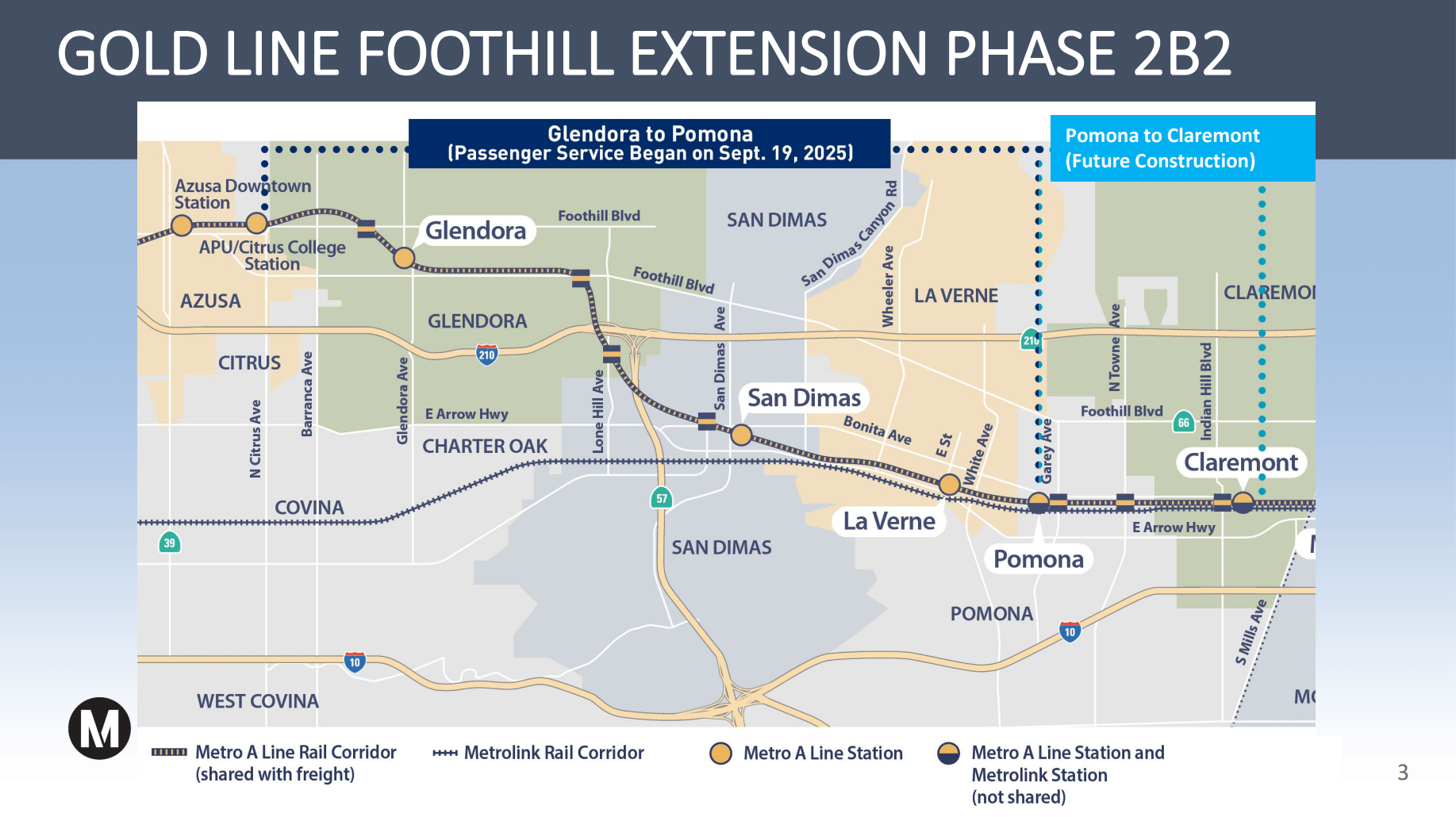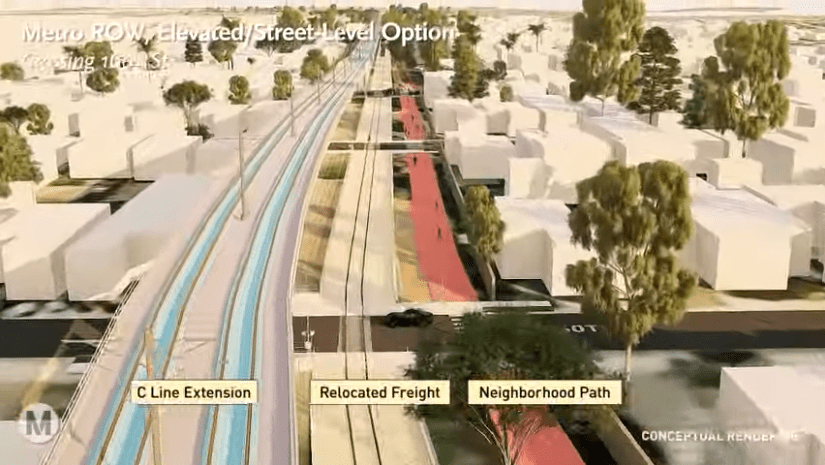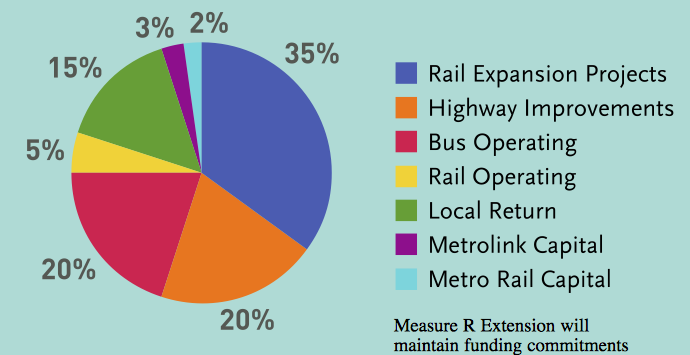
Just after high noon, the Metro Board of Directors voted to place a ballot proposition on the November 2012 ballot to extend the Measure R sales tax's horizon year from 2039 until 2069. Los Angeles County voters passed the Measure R half-cent sales tax in 2008 to pay for a massive extension of the county's transit system and specific highway projects. The measure still needs approval from the full State Senate and Governor Brown before going to the ballot. Once on the ballot it needs a two-thirds vote of County voters.
The vote was not unanimous. Of the thirteen member board, several speakers spoke and voted against the proposal. L.A. County Supervisor Mark Ridley-Thomas referred to the proposal as "way premature in the balance of our priorities." While Supervisor Don Knabe lamented that extending the sales tax would give too much power, and funding, to Metro. "Once you give the agency an open checkbook...you lose the discipline." You can read Knabe's full statement, here.
In order to increase support for the proposal both with the Board and with November's voters, Board Member Richard Katz, an appointee of Mayor Villaraigosa, ammended the original motion which would have left the sales tax open ended. Instead of relying on voters to repeal the extension at some future date, the current plan would expire in 2069.
Which is not to say that nobody was in favor of the proposal. Supervisor Zev Yaroslavsky, Villaraigosa, Lakewood Mayor Diane Duboise, Katz and Director John Fasana all spoke in favor of the motion to allow the extension on the fall ballot. They were bolstered by testimony from Move L.A., the National Resources Defense Council and the Sierra Club.
As expected, the Bus Riders Union formalized their opposition. Eric Roman, the BRU's communications director, kicked off a team of speakers in yellow by arguing, "There's something wrong with building a coalition by promising things to various parts of the county while ignoring the needs of the actual riders." The BRU argues that such a large tax should focus on keeping fares low for bus riders and increasing bus service before funding rail projects or highway projects.
Also speaking in opposition was Damien Goodmon and a group of residents concerned with an at-grade Crenshaw light rail line and its impact on local business. Residents and leaders from the Santa Clarita Valley concerned that they weren't receiving their fare share of local return and allocated funds.
There were four ammendments that drew major debate.
The first was by Supervisor Ridley-Thomas who motioned to delay the vote to make certain there was support for the measure before Metro spent $10 million to place it on the ballot and "educate the public." The motion was rejected. However, during debate Supervisors voiced unhappiness with Metro's "educational pieces" mailed to voters in 2008. To alleviate these concerns, Supervisor Yaroslavsky authored and passed an amendment requiring all "educational materials" for the ballot proposition to be reviewed first by the Board of Directors.
There was a moment of unintentional levity when Supervisor Yaroslavsky submitted a friendly-ammendment to the original motion that fixed the "many grammar and formatting errors" of the motion. The Supervisor complained the motion sounded as though it were written by a computer, not a human and borrowed Katz's I-Pad to fix the motion and email it to the Board secretary to be shared with the staff.
A more significant motion will be added to the proposal next month. Fasana authored a motion that would allow the Board to shift funding from one project to another within a sub-region, even if it were for a different mode of transportation. Supervisor Knabe, while boosting the motion, showed how such a motion could be a problem. "We could take savings from the (Gold) Line and spend it to expediate the 710 expansion," he summarized. Because this is a major policy change, it requires a public hearing and public notice. A vote on this motion was tentatively scheduled for the July Board Meeting.
